
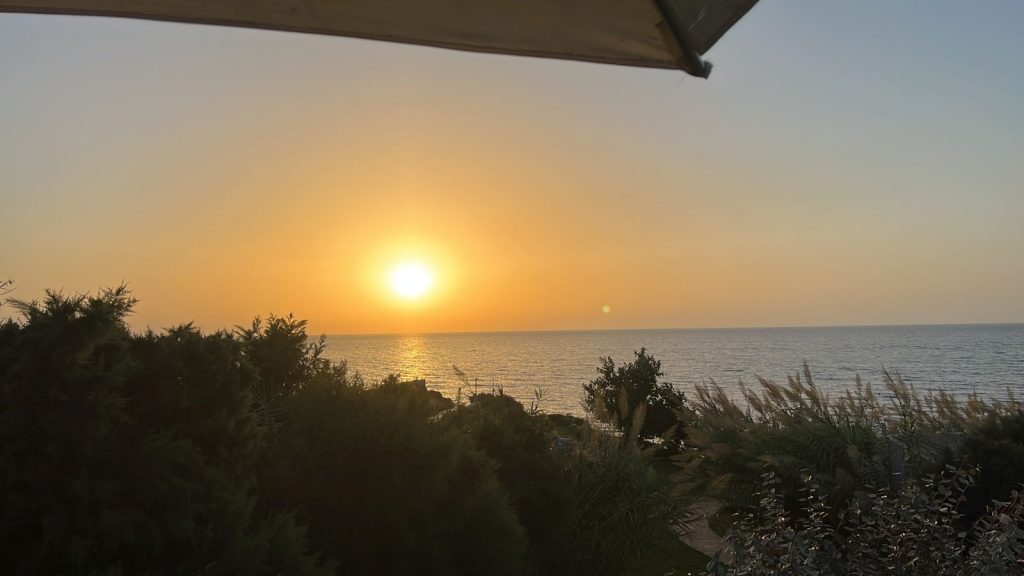
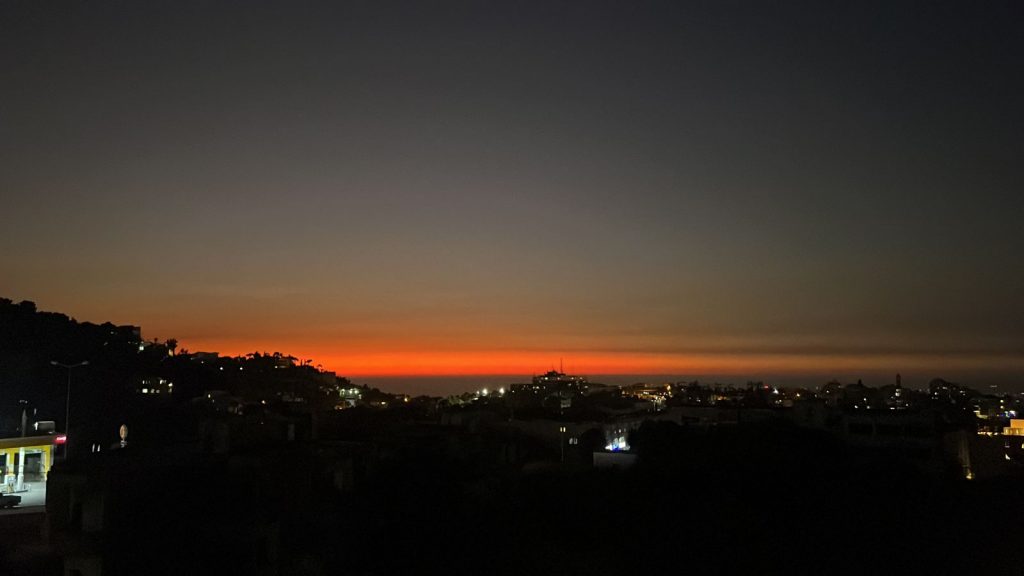
Roula Douglas from her own balcony
To thank you Roula for making her day with your beautiful pictures, and for your generosity, Bambi would like to offer you, as well as your fellow Beirutis, Mika’s song entitled “Staring at the sun“!

Bambi's Thoughts



To thank you Roula for making her day with your beautiful pictures, and for your generosity, Bambi would like to offer you, as well as your fellow Beirutis, Mika’s song entitled “Staring at the sun“!

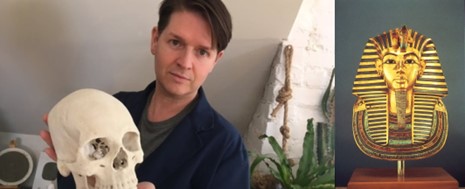
A big thank you to the Warktimes for informing us about one of the latest and greatest achievements of Mr. Christian Corbet. Bambi is referring to Mr. Bruce Wark’s article entitled “King Tut ‘reborn’ in Sackville 100 years after discovery of his tomb” (https://bit.ly/3SJS05g)!
From the above Warktimes excellent article, we learn the following: ” Corbet created King Tut’s forensic facial reconstruction for a two-hour PBS documentary on the ancient ruler filmed to mark the 100th anniversary of the discovery of his tomb in the Valley of the Kings on the west bank of the Nile near the city of Luxor.”
Of note, Mr. Christian Corbet seems to have “insisted on doing it here in Sackville“. As also reported in the Warktimes (https://bit.ly/3SJS05g), this artist’s own words were as follows: “I wanted to work from my home, that’s where my studios are,” he says, “and I thought this was something that would benefit not only our province, but our little town.” For more details about this project, you may wish to read the full article in question.
Thank you, Mr. Cobert, for your inspiring talent. Indeed, Bambi had the honour to visit your studios. We are not just lucky, but also blessed, to have the latter located in our small town. Indeed, Mr. Corbet’s creations have been collected by over 100 art galleries, museums, and other institutions worldwide. He is regularly cited in the international literature. The Canadian Government has awarded him coat of arms and badge. He is also the recipient of the Diamond Jubilee Medal in addition to numerous honourary titles by our governments. In addition to his arts and being an art historian, he is a great lecturer, a devoted mentor as well as patron. In addition to his shining career, excellence in arts, and inspiring work ethics, those who know Mr. Corbet, as a valuable member of our community, appreciate his humanity and personality.
To conclude this post on a musical note, Bambi will end with a song that pays tribute to Egypt. It is in Arabic, entitled “Sallem ala Masr” [“Send my regards to Egypt“], and sung by Ms. Hiba Tawaji from out of Lebanon. If she may, she would like to offer it to Mr. Corbet, Mr. Wark, Fatma, and Laila!


She does not know about you, but Bambi loves “L’essentiel” [The essential thing] of our GREAT Canadian singer, Ms. Ginette Reno. This morning, she discovered a beautiful interpretation of this song by another artist, also from Québec, whom Bambi had the honour to meet in graduate school. She will name Mr. Nicola Ciccone who is filled with both talent and humanity.
In a world filled with increased intolerance and indifference, thank goodness, there is also the magic and power of love that can transform us to make us better human beings, not just in the face of dramatic adversity, but also simply yet deeply in our daily lives, as per this super French song, which can be translated as follows (https://lyricstranslate.com/en/lessentiel-essential-thing.html):
“The essential thing
Is to be loved
Everything else matters little
The only truth is
To count for someone,
whatever may happen
It is about entering someone’s heart and never leaving it
It is about receiving as much as we wish we could give
To no longer belong to one’s self, to be comforted on account of it
It is to see the joy in another and to melt in happiness
To earn another’s trust and to become a better person
The essential thing
Is to be loved
Notwithstanding what may be claimed
It’s not about being rich or famous
For those are just wind passing through
I believe that what is essential is made of little nothings
Having someone waiting for you at night, running
to greet you
One of the most beautiful gifts
that life has given us
is when our name
seems like a compliment
The most essential thing
Day after day
Is the loud laugh of a child, rushing towards you
And who tugs at your heartstrings as a means of saying hello
What more can you ask for
When those arms are holding you
The rest matters little, the only truth
Is to count for someone
no matter what life has in store
Even if being one day exiled in a foreign country
but to have, in one’s heart, someone to talk to
It is to inspire in another, a feeling so powerful
That it may survive us beyond death
It is about being loved, again and forever
My Love …“

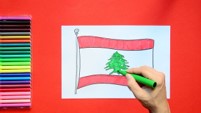
First, meet Mr. Georges Siam, with his own introduction about himself on his Twitter account:
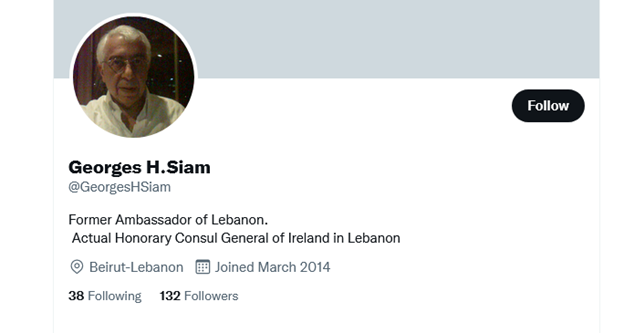
Second, here is a CNN article, featuring this story, and entitled “Former Lebanese ambassador holds sit-in at Beirut bank amid new wave of heists” (https://cnn.it/3RyyJ5C). It seems that Mr. Georges Siam is refusing to leave his bank without his own money. Of note, Mr. Siam is unarmed and peaceful.
As a reminder, what happened to the Lebanese people is surreal. It is a financial crime (i.e., Ponzi scheme). Indeed, depositors still cannot have access to their own savings since October 17, 2019 (in contrast to the country’s most powerful people who have stowed their money abroad).
The country is now bankrupt with hyperinflation and with a dramatically lowered quality of life. As reported in earlier posts citing international media, the World Bank has described the Lebanese economic crisis as the worst in history since the mid-1800s.
Will the gesture of Mr. Siam make any difference? At least, it has captured the attention of international media. For that, thank you Mr. Georges Siam. Of note, from the CNN article above, Bambi also learned that, last month, Mr. Siam has publicly supported a a Lebanese depositor who held-up a bank with a toy gun.
To conclude this post on a note of solidarity with the Lebanese population, if she may, Bambi would like to offer the people of her birth country Mr. Élie Berberyan’s beautiful patriotic song. It is in the lovely Armenian language and is entitled “Lipanan Im Yergir“.


Bambi was searching for another song by Dalida when she came across “Avec le temps” [With time], which was written by Mr. Leo Ferré in 1971. If you wish, you may first read an English translation of its moving lyrics (https://bit.ly/3EicQ7M). Last but not least, this brief musical post will end with Dalida’s masterful interpretation, which was perhaps inspired by the ups and downs of her own life.

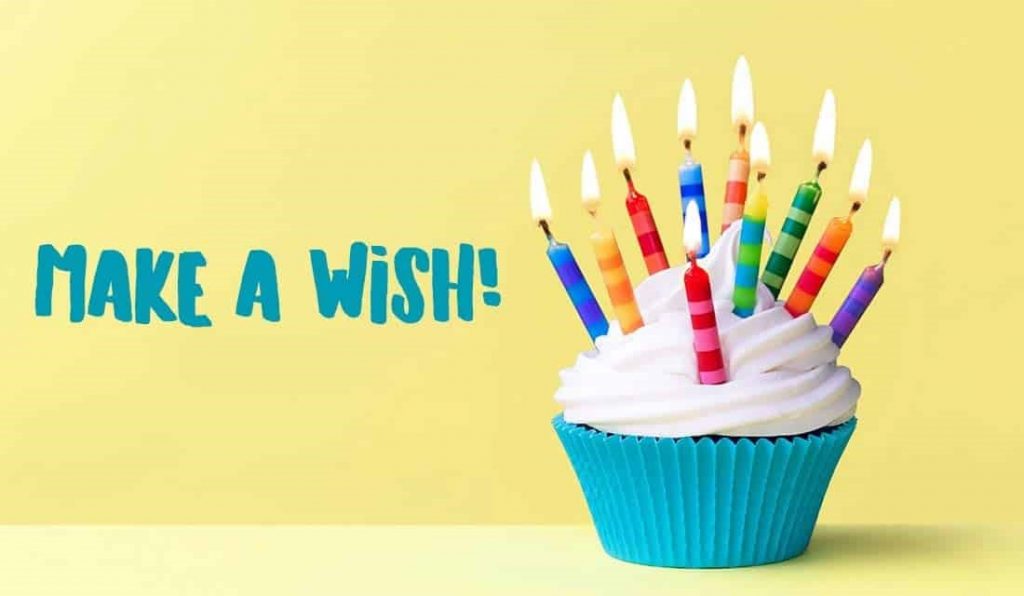
“Id meen el youm“? Ye, it is your birthday Joëlle today :). Happy Birthday from Bambi and all her family abroad and at home! May you have a wonderful day and a great year. One thing is sure: You do deserve all the love and happiness of the world ❤️!! Two songs for your today, hoping you will smile, enjoy, and maybe dance too :).


First of all, what is Shariah? It is a religious legal system, which is a code for living for Muslims. It is based on the Quran, Islam’s holy book, and both the Sunnah and Hadith. The latter are the reported acts and sayings of the Prophet Muhammad.
Bearing the above in mind, Dubai-based ASDA’A BCW agency published results of a survey conducted with 3,400 Arab youth, aged 18-24 (half of them males and half females) living in 50 urban centres in 17 different Arab countries. The survey asked questions related to identity, politics, livelihood, global citizenship, lifestyle, etc.
One of the survey questions was related to the Shariah’s law. Despite a brief search, Bambi could not find the wording of this survey question or information on the survey errors. Nevertheless, as shown below, it seems that 56% of participants reported that their countries’ laws must be based on Shariah (Islamic law), not on civil/common law (https://arabyouthsurvey.com/en/findings/).
Of note, up to 70% of youth from the Gulf countries expressed their preference to have the laws of their states based on Shariah. In North Africa, 60% of youth reported wanting their countries’ laws to be based on Shariah. In comparison, only 41% of Arab youth in the Levant region expressed a similar view. Bambi suspects that this latter finding would vary across countries of the Levant, with Lebanon likely having the lowest percentage of youth expressing such views.
She does not know about you, but Bambi finds it highly worrisome that young Arabs seem to prefer to live under the Shariah law, which is incompatible with democracy, like in Iran, Saudi Arabia, and other countries. Why, Bambi cannot help to wonder? It would be highly informative if the next edition of this survey, and others, ask these youth about their reasons to prefer the Shariah law. Ideally, an open-ended survey question, without any predefined answer, would allow them to answer as they wish, that is with their own insights.
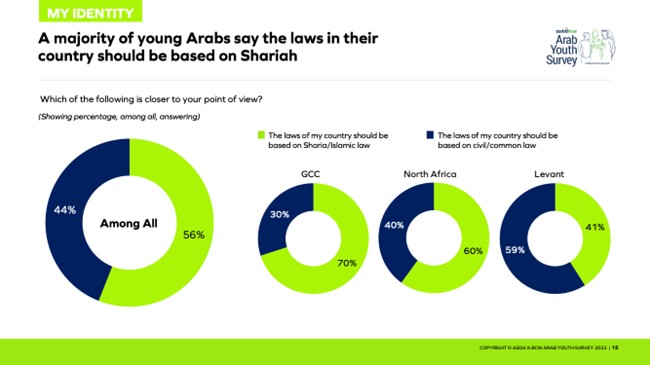

Bambi would like to begin by thanking her friend Rose for sharing Mr. Shervin Hajipoor’s (https://en.wikipedia.org/wiki/Shervin_Hajipour) most beautiful song!
It is highly shocking, and very sad, to learn now that he has been arrested days ago by the Iranian regime after he posted his song. It seems that the latter became like the national anthem of the protests in Iran. How sad and unacceptable that no one knows where he is right now.
Bambi is praying for you, Mr. Hajipoor. May you be found and released as soon as possible!!

To begin this brief post, Bambi would like to cite one of her good friends, if she may. Without naming her as she did not have the chance to ask her permission to do so, her friend will surely partly recognize her own words below: “In the name of religion: in some parts of the world, women are banned from wearing a hijab, when they wish to do so, like in India ( https://reut.rs/3CrpgbR). In contrast, in other parts of the world, women can be beaten to death if they show hair under a hijab, like in Iran, or do not wear a burka, like in Afghanistan” (ps://bit.ly/3Crvzw9).
This being said, Bambi will leave you with “the picture of the day”, which was taken from Orient Today (https://bit.ly/3y9c4po). For those who do not read Arabic, the signs of the demonstrators read as follows: “My hair and my body only belong to me” and “our bodies are ours“.
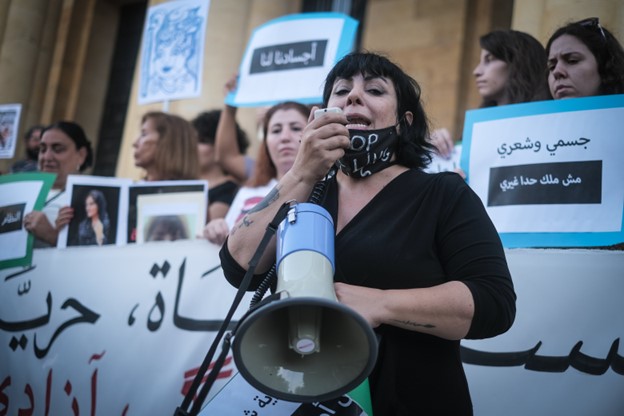
—
Earlier posts on the topic:


Bambi is speechless… MANY of you know why, including you dear “Samo”. She loves you beyond words, thanking God because we are family ❤️️!
